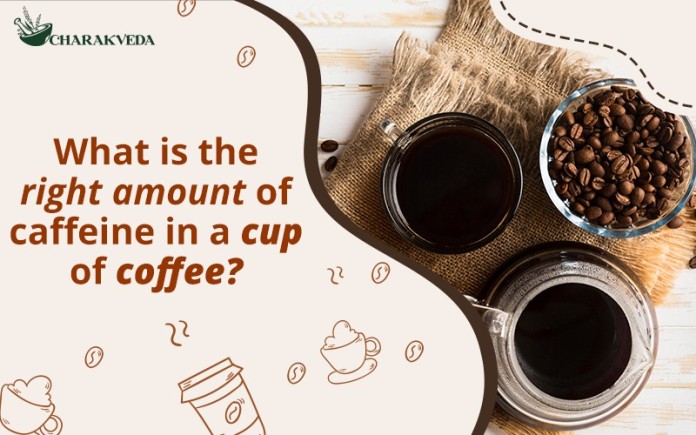As soon as you hear the word coffee, you might start thinking about that first cup of freshly brewed coffee that you drink every day, or probably about how you carry your mug of favourite roast to work, or maybe about the fact that you might not live without it? Well, we all love coffee, don’t we? Most of us follow a routine that surely includes either a cup of coffee or tea to wake us up or provide us with the much-needed stimulation after a boring meeting or a long zoom call. Have you ever thought about how much caffeine have you been consuming every day and whether or not it is good for your health? Well, read on to find out the amount of caffeine in a cup of coffee.
What is Caffeine?
Well, caffeine is a kind of stimulant drug that is naturally found in coffee beans. Caffeine is considered to provide you with instant stimulation by making your senses more active and focused. Many of you might be drinking a hot cup of caffeine coffee while you are preparing for an exam and want to be more focused or working on a report that has to be mailed stat or just when you want to wake up properly and go about your day.
What determines the amount of caffeine in a cup of coffee?
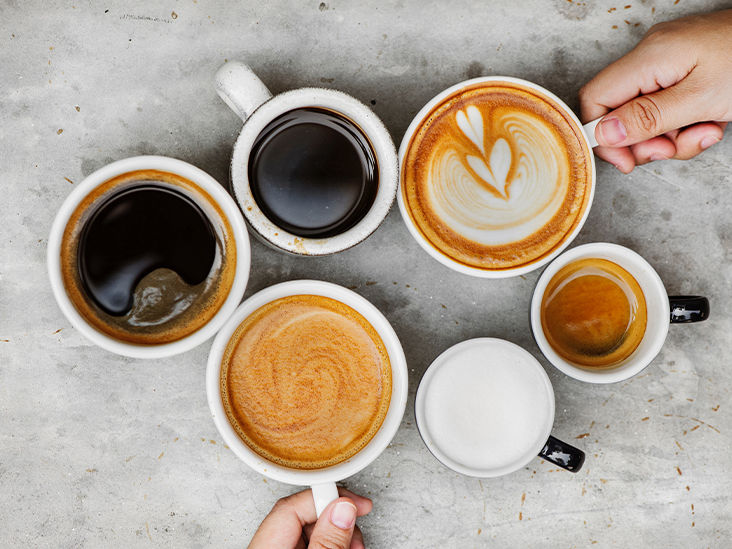
The answer to the question: how much caffeine is there in a cup of coffee is not as straightforward as you might think. Several factors affect the caffeine coffee carries.
- Type of Coffee Beans: There are several varieties of natural coffee beans available across the world, and each one carries a different amount of caffeine in them.
- Type of Roast: The type of roast you use to make your coffee every day also affects the amount of caffeine it contains. For example, the lighter roasts have higher caffeine coffee as compared to the darker ones. But the darker roasts have a deeper flavour than the lightly roasted coffee beans.
- Type of Coffee: Yes, the kind of coffee that you want to drink – decaf, espresso, latte, brewed, instant – also determines how much caffeine you are consuming in a cup of coffee.
- Serving Size: Well, “one cup of coffee” can mean anywhere from 30ml to 180ml. Thus, while determining the caffeine coffee, the size of the beverage would also matter.
But what amount of caffeine is in a cup of coffee?
While the four factors – type of coffee beans, type of roast, type of coffee and the serving size altogether decide the amount of caffeine in your cup, it is the type of coffee that is the main determinant of the amount of caffeine in a cup of coffee. Let’s have a look at how your choice of coffee determines the amount of caffeine you are consuming.
Brewed Coffee
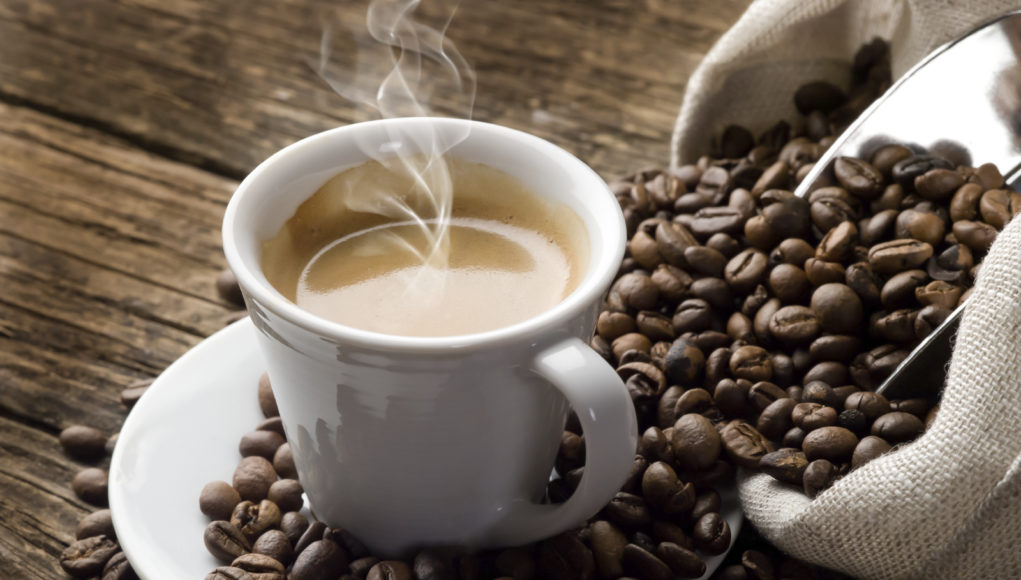
Brewed coffee is one of the most common ways the world drinks this beverage. It is prepared by pouring hot water over ground coffee beans spread over a filter to the glass jar.
About 250mL of brewed coffee contains anywhere between 70 to 140mg of caffeine in a cup of coffee; 95mg caffeine on an average.
Espresso
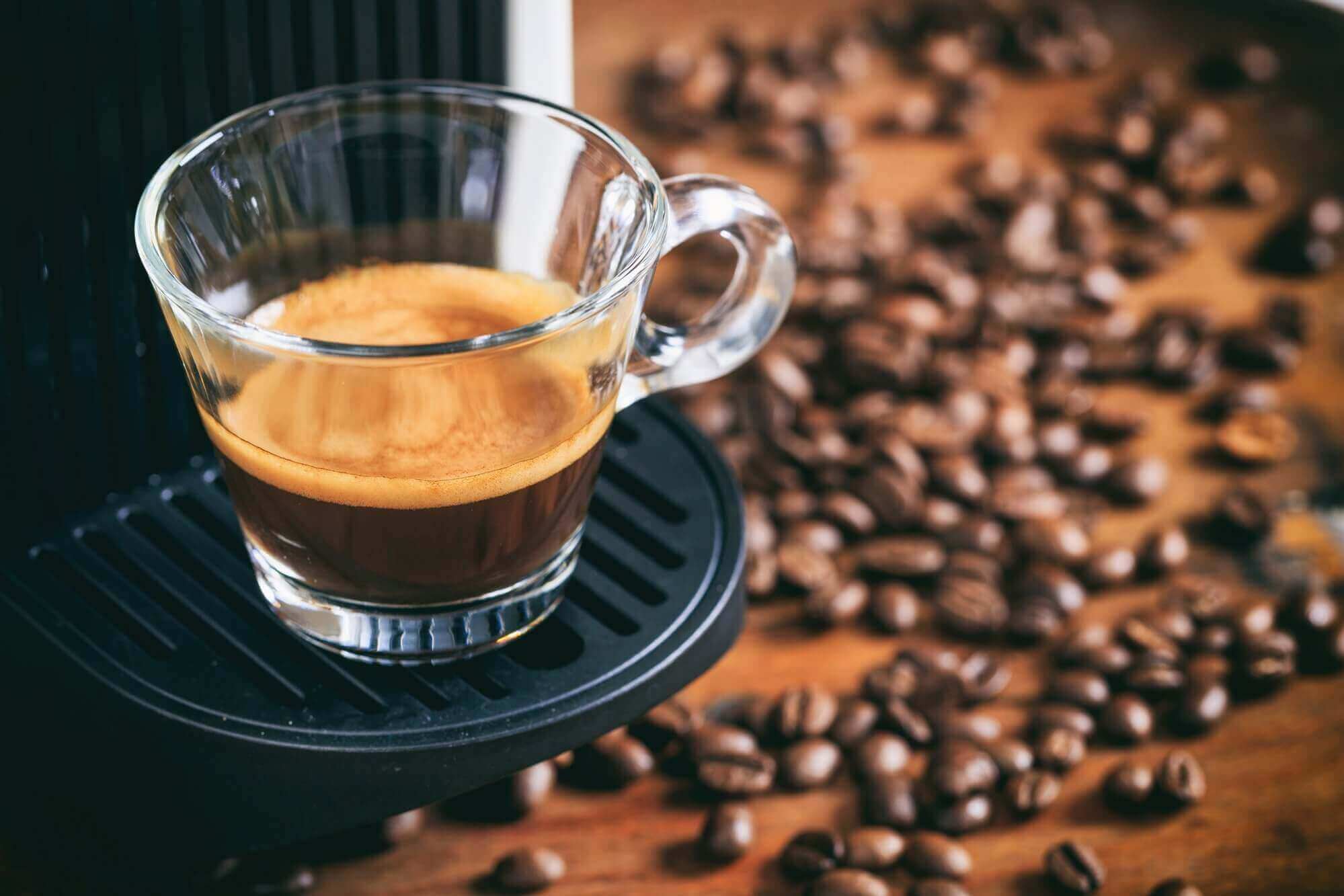
As the name suggests, this is the fastest way to introduce a huge amount of concentrated caffeine coffee into your bloodstream. Even though espresso coffee is served in smaller sizes, it contains a large amount of caffeine.
Espresso is prepared by forcing a small amount of water or steam through finely grounded coffee powder. Espresso is served as a shot and the average size is about 25-50mL. It consists of about 63mg of caffeine in one cup of coffee.
Espresso-based Drinks
While many of us might not like to straight-up shoot coffee as espresso shots, you might like to drink espresso-based drinks like lattes, cappuccinos, Americanos or macchiatos, right?
Well, these drinks are made by mixing espresso with milk. Since milk doesn’t contain any additional caffeine, the amount of caffeine in these drinks remains the same as an espresso shot.
Instant Coffee
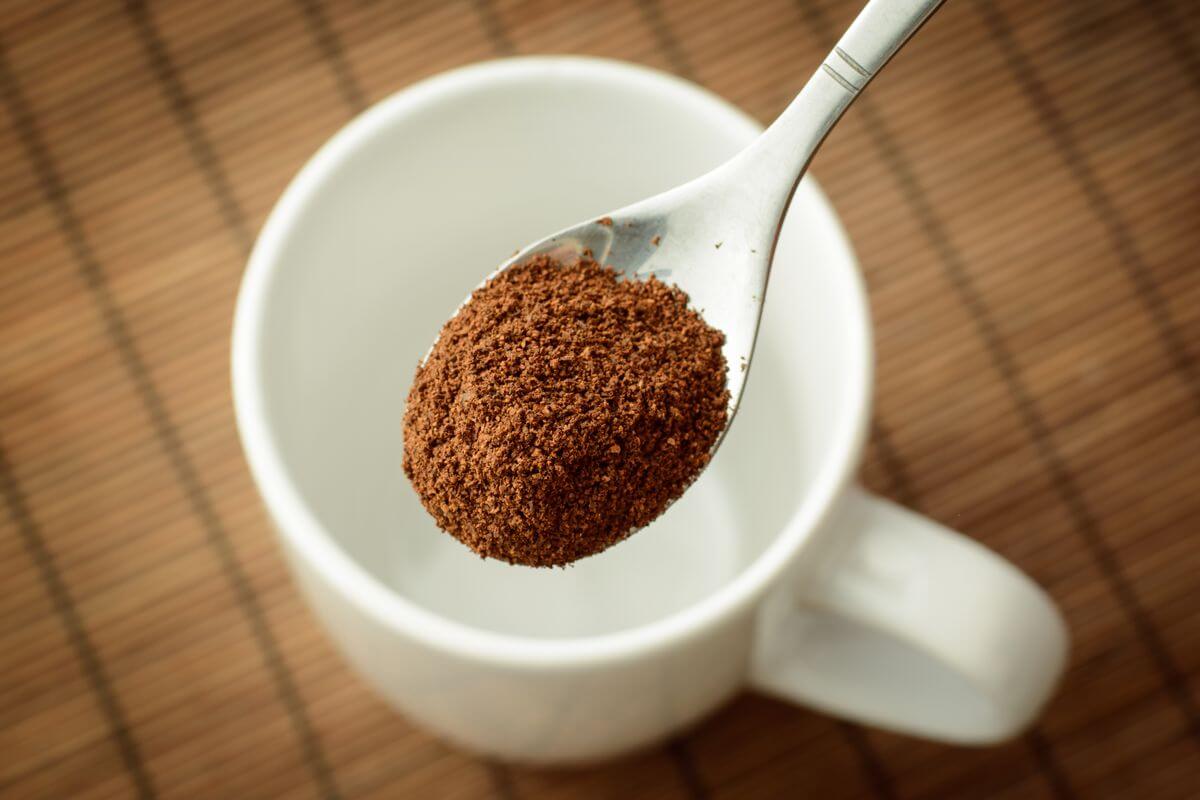
If you are not a connoisseur of brewing your coffee every morning, I am sure you must love having instant coffee at your home. Instant coffee is made by freezing or spray-drying the brewed coffee. The frozen or dried coffee is available as smaller coffee granules in the supermarket which gets easily dissolved in a cup of hot water.
Even though instant coffee is made from brewed coffee, it consists of a lesser amount of caffeine in a cup of coffee. For every 250mL of instant coffee, you are consuming an average of 30 to 90mg caffeine.
Decaf Coffee
Okay, so we all are aware of the trend of drinking decaf coffee, and many of you die-hard coffee fans might consider this to be just another fad as it doesn’t provide the high like any other type of coffee. But the name is quite deceiving as a cup of decaf coffee is not entirely caffeine-free.
An average 250mL of decaf coffee might contain anywhere between 1 to 7mg of caffeine, with about 3mg being an average amount per serving.
5 Benefits of Drinking Coffee
Did you know that while drinking coffee every day might be addictive, there are several benefits attached to this hot cup of beverage? Here are some of the benefits of drinking coffee that you might want to consider:
- It helps with constipation: If you have been dealing with some irregular bowel movements, a cup of coffee every morning can help you smooth things out.
- You might live longer: Studies have revealed that drinking coffee every day can increase your chances of longevity. It reduces the chances of various diseases in women like coronary heart disease, diabetes or kidney failure.
- Reduces risk of diabetes: Many studies have found that coffee drinkers are less likely to get type-2 diabetes as caffeine helps in processing glucose effectively.
- It is good for your liver: It has been observed that both regular and decaf coffee has a protective effect on the liver. Coffee drinkers have healthy levels of liver enzymes in comparison to non-coffee drinkers.
- Reduces risk of brain-related diseases: Studies have shown that coffee drinkers are less likely to develop brain-related diseases like Parkinson’s and Alzheimer’s.
How much caffeine should I consume every day?
While drinking coffee every day might contribute several benefits to your health, it is advisable to drink this beverage in moderation.
For an adult, including about 400mg of caffeine, every day can be considered normal. That can be considered about four cups of freshly brewed coffee.
If you are a child, adolescent or pregnant woman, you must avoid drinking coffee every day.
What happens when you drink more than 4 cups of coffee every day?
When not consumed in moderation, drinking more than four cups of coffee can also have some unpleasant effects. Some of those might include:
- Headache
- Irritability
- Feeling jittery
- Insomnia
- Frequent urination
- Increased heart rate
- Muscle tremors
The Bottom Line
There is about 95mg caffeine in a cup of coffee, serving size being 250mL. Drinking a cup of coffee every day might bless you with several benefits like reducing risks of heart-related and brain-related diseases as well as diabetes and colon cancer, going over the recommended dosage can also leave you feeling unpleasant side effects.


